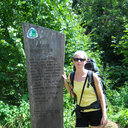Silymarin Constituent 2,3-Dehydrosilybin Triggers Reserpine-Sensitive Positive Inotropic Effect in Perfused Rat Heart.
Mots clés
Abstrait
2,3-dehydrosilybin (DHS) is a minor flavonolignan component of Silybum marianum seed extract known for its hepatoprotective activity. Recently we identified DHS as a potentially cardioprotective substance during hypoxia/reoxygenation in isolated neonatal rat cardiomyocytes. This is the first report of positive inotropic effect of DHS on perfused adult rat heart. When applied to perfused adult rat heart, DHS caused a dose-dependent inotropic effect resembling that of catecholamines. The effect was apparent with DHS concentration as low as 10 nM. Suspecting direct interaction with β-adrenergic receptors, we tested whether DHS can trigger β agonist-dependent gene transcription in a model cell line. While DHS alone was unable to trigger β agonist-dependent gene transcription, it enhanced the effect of isoproterenol, a known unspecific β agonist. Further tests confirmed that DHS could not induce cAMP accumulation in isolated neonatal rat cardiomyocytes even though high concentrations (≥ 10 μM) of DHS were capable of decreasing phosphodiesterase activity. Pre-treatment of rats with reserpine, an indole alkaloid which depletes catecholamines from peripheral sympathetic nerve endings, abolished the DHS inotropic effect in perfused hearts. Our data suggest that DHS causes the inotropic effect without acting as a β agonist. Hence we identify DHS as a novel inotropic agent.


